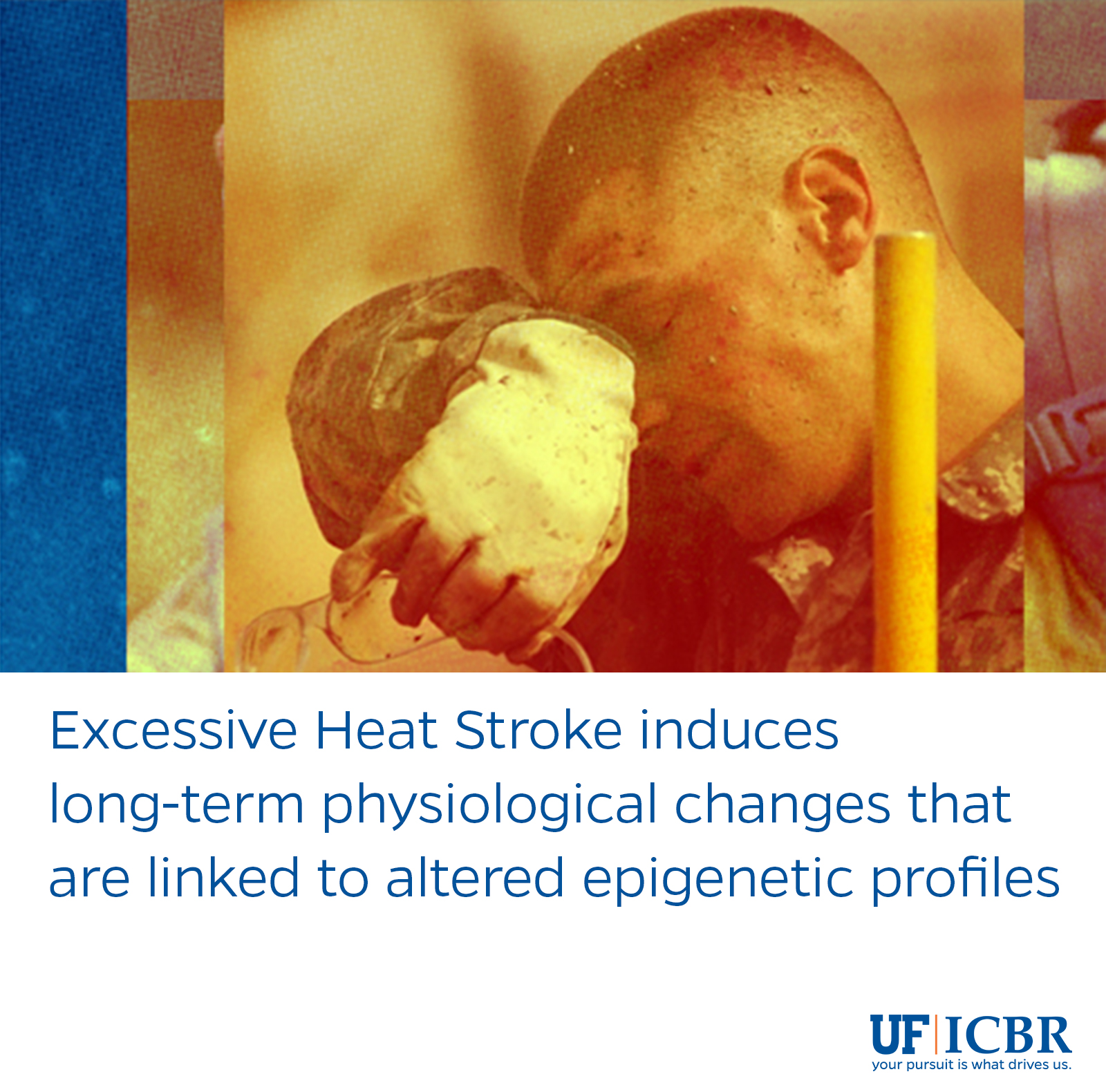Excessive Heat Stroke Induces Long‐term Physiological Changes That are Linked to Altered Epigenetic Profiles
Epigenetics is the study of heritable phenotypic change that involves chemical modifications to the DNA genome sequence or associated DNA-binding proteins. These specific alterations affect how cells turn genes off or on. Exertional heat stroke (EHS) can cause long-term negative effects on health. Although epigenetic “reprogramming” of the genome is involved in the response to heat acclimation, it is not known whether the long-term effects of EHS are mediated by epigenetic reprogramming.
In a study supported by the Department of Defense, Dr. Thomas Clanton, Dr. Michael Kladde and their collaborators in the Departments of Applied Physiology and Kinesiology, and Biochemistry and Molecular Biology examined the DNA from mice exercised in a hot environment until they reached heat stroke. The goal was to provide insight on how the genome may be altered in response to the long-term consequences of intense activity in hot climates. The authors used a method called whole-genome bisulfite sequencing (WGBS) that can identify those bases in the genome that have been chemically modified by the addition of methyl groups. In addition, the study used RNASeq analysis to measure mRNAs levels in blood cells as an indicator of active and inactive genes. The goal was to relate changes in gene expression, detected through RNA-Seq, to long-term alterations in methylation patterns, detected using WGBS. Genes that are in the off position (no mRNA produced) should have distinct methylation patterns. Results from this study demonstrate that EHS leads to a unique DNA methylation pattern in blood monocytes and altered immune and heat shock gene expression patterns after 30 days. These data support the hypothesis that EHS exposure can induce long-term physiological changes that may be linked to altered epigenetic profiles.
ICBR Bioinformatics Scientific Director, Dr. Alberto Riva, assisted with the WGBS and RNA-Seq analysis through custom computational pipelines.
To read the publication, visit: https://pubmed.ncbi.nlm.nih.gov/33037634/


